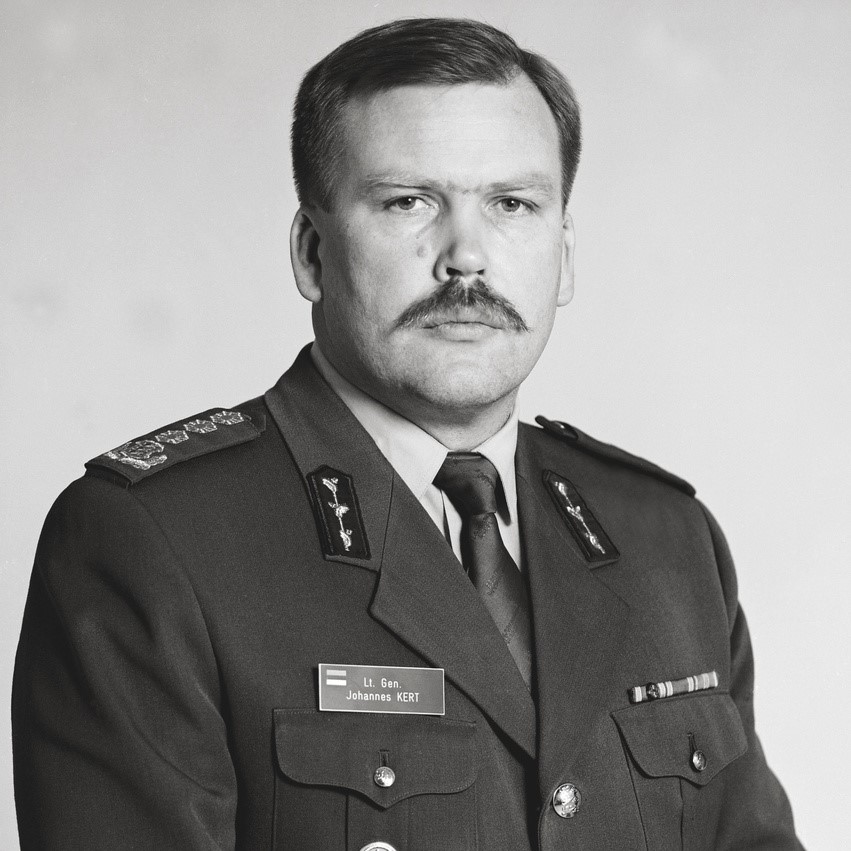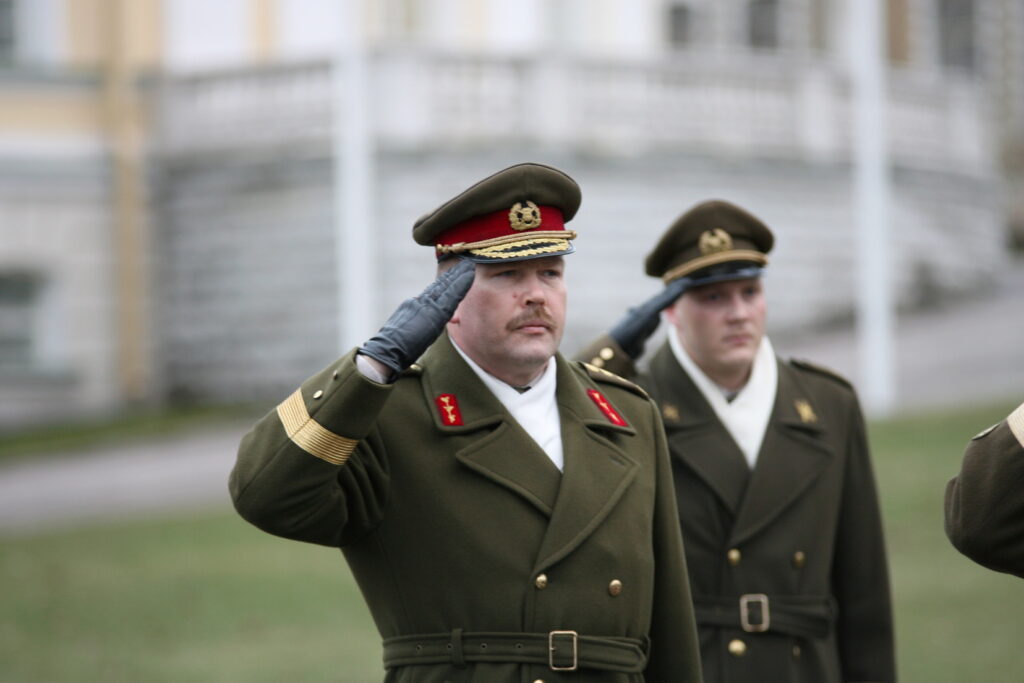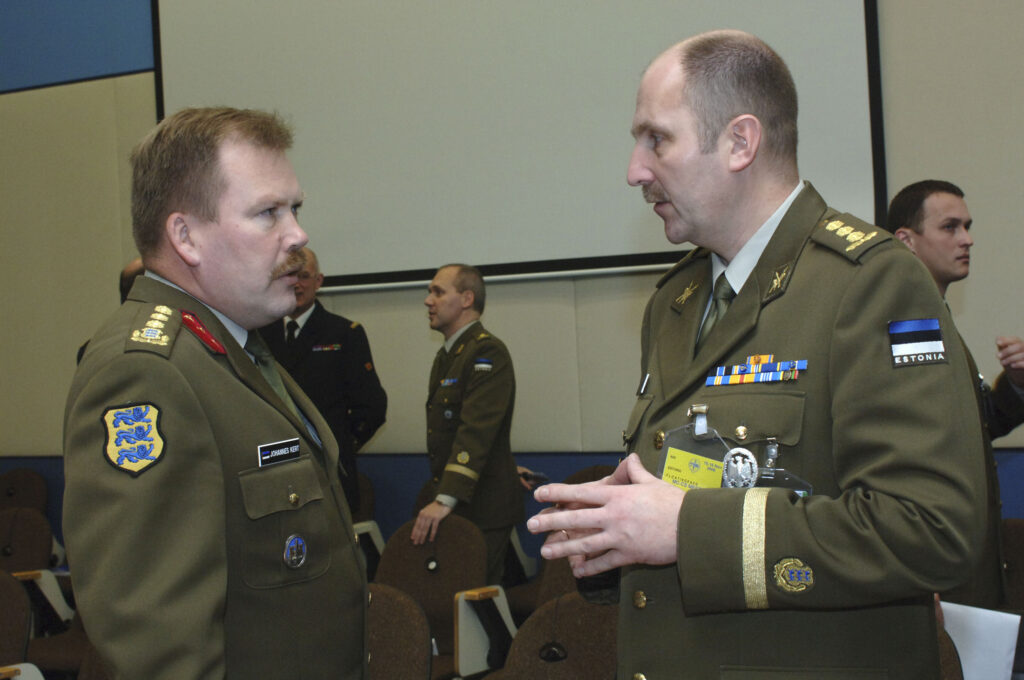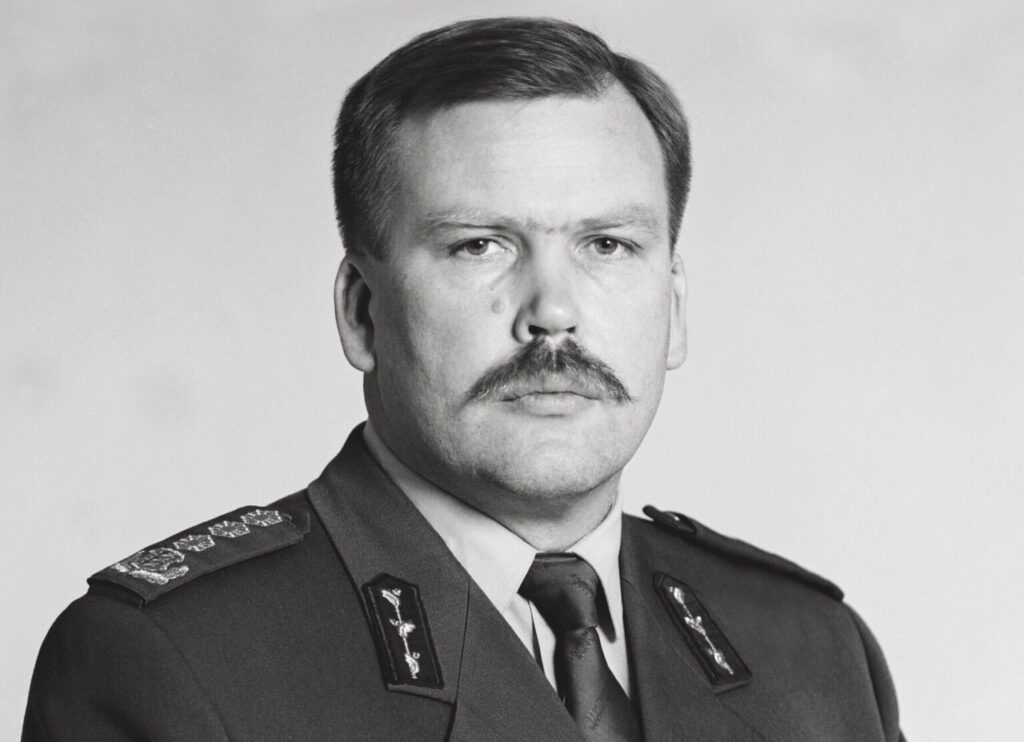Johannes Kert, who as the former Commander of the Estonian Defence Forces led Estonia towards NATO and helped rebuild the Estonian military, has died at the age of 61; the boots of this straightforward military man, who didn’t waste words or spare time for niceties, will be impossible to fill, the Estonian MP, Eerik-Niiles Kross, writes.
The Estonian political, defence and military life has suffered an unexpected loss. Lieutenant general Johannes Kert, who played an integral role in rebuilding the Estonian Defence Forces, has died far too soon at the age of 61. A gravitational force that strengthened Estonia’s confidence in its post-independence defence, he was also the brain behind NATO’s early cyber defence initiatives and a formidable politician and MP in the latter years of his life.
Kert was born in 1959 in a southeastern town Petseri, part of Estonia as per the Tartu Peace Treaty. His birthplace was doubly occupied by the Soviet Union. First, it was annexed with the rest of Estonia by Soviet dictator Joseph Stalin, the Red Army, and the NKVD (The People’s Commissariat for Internal Affairs of the Soviet Union, basically the Soviet interior ministry) in 1940. Then, in 1945, Moscow changed the “internal borders” of the Soviet Union and gave Petseri to the Russian Soviet Socialist Republic (now the Russian Federation). Today, Petseri remains on the other side of the Estonian-Russian control line and would remain in Russian territory if the border treaty agreed with Russia would be ratified (it has not been for the last 15 years).
Johannes did not talk much about his birthplace. But its fate must have had an impact on his choices during his career – and his passion for his work. He dedicated his life to making sure no more Estonian territory would ever be given away, whether under diplomatic pressure or under military threat.
A protector from bullying and humiliation
An athlete in his youth, Kert trained as a coach at the University of Tartu and was forced to serve as lieutenant in the Soviet Army after his graduation. He served in what is now Lithuania, at a base where many Estonian conscripts did their initial training at the beginning of their two obligatory years of service before being assigned to remote Soviet military units (much like their fathers and grandfathers had been sent to the remote GULAG prison camps). Many in his unit remember Johannes Kert as their protector from the usual Soviet Army bullying and humiliation.
In the late 1980s, when the power of the Soviet Union started to show its first cracks, Johannes returned to Estonia and joined forces with the independence movement. He did what he knew best and felt was his mission. He used his skills, learned from the opponent, and started to organise an underground Estonian defence league in Tartu, his former university town. In 1990, still in the Soviet-occupied Estonia, he became the commander of the Tartu Defence League.

When Estonia finally regained its long-awaited and hard-fought independence in 1991, Johannes became one of the leaders in rebuilding, organising, arming, and training the Estonian military from scratch. He did so while many thought it was impossible, especially while Russian military forces were still in Estonia and reluctant to leave their bases.
Kert’s story needs to be told at length. Today we just say: he succeeded. He became the commander of the first re-established unit of the Estonian army in 1992. From 1993 until 1996, he was the commander of the Estonian Defence League – the organisation banned by Stalin in 1940 and re-established and rebuilt by Johannes Kert himself.
In 1996, he became the Commander of the Estonian Defence Forces, serving as the youngest chief of defence forces in Europe at the time. His stated mission was to root out any remnants of the Soviet legacy – the mentality, habits, and practices that he thought would tarnish the military of a democratic, European, reliable, spiritually and morally-sound country. He led Estonians to aspire towards NATO and succeeded in setting the foundations that would make the country eligible for NATO membership. Today, this seems almost an unimaginable challenge. He got it done.

Johannes was perhaps not a polished staff officer type. He came from a rough part of the country and had had rough early years. He reminded me more of an Estonian War of Independence-type battle officer, stepping straight from 1919 into the future, rather than a politically-sensitive staff officer skilled in hallway manoeuvres. He was straightforward – friendly, but firm. He didn’t waste words or spare much time for niceties. He always got straight to the point.
His boots will be impossible to fill
This bluntness was a huge advantage in the early years, when it was necessary to get things done. But it might not have been an asset once the Republic of Estonia was re-established. Kert left his high office in 2000, during a time when politics started to take over policy in Estonian affairs. But he didn’t step away from his mission. He stayed on as an adviser to his successor and served as the commander of the Estonian Land Forces from 2001-2002. He also served Estonia as its military representative to NATO from 2002-2008.
After retiring from active duty, Kert still didn’t stop. He dedicated his time to advising, helping, and enhancing the defence of Estonia. Occasionally reporting to captains as a civilian, the retired lieutenant general worked as an adviser to several Estonian defence ministers, led the effort to establish the NATO Cooperative Cyber Defence Centre of Excellence in Tallinn, and became its main spokesman in Brussels. He also advised the country’s Defence League and taught at the Estonian Defence Academy.

In 2015, Kert successfully ran for a seat at Estonian parliament, the Riigikogu, and then tirelessly worked from a seat on its defence committee to advance his life’s mission.
It is a horrible realisation that he is no longer with us. The boots of this Estonian soldier will be impossible to fill. The mischievous spark in his eye will be missed as much as his light-hearted jokes and dead-serious advice.
Kert was a legend in his lifetime. I have no doubt this legend will grow as we realise what we have lost.
Johannes Kert died at his country home in the most south-easterly corner of Estonia, facing the Russian border, his birth town just over the border and not very far away. He used to say that he gets his peace of mind looking at Russia in the distance, making sure no one is coming. Now his watch continues from somewhere else while we carry on the mission in his memory.
Cover: Johannes Kert (3 December 1959 – 4 March 2021). Photos by the Estonian Defence Forces.

